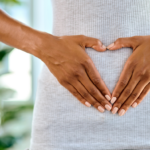The first night of Hanukkah will begin after sundown this Sunday, December 22nd, and will end the evening of Monday, December 30th. For those of us that identify with the Jewish faith, Hanukkah is an 8 day celebration— (but what it celebrates can certainly be honored by anyone).
This year, it feels especially important that the “Festival of Lights” coincides with the winter solstice.
The story of Hanukkah is one of my favorites. I’ll tell it the way that I was told growing up, with full awareness that are many versions of this story and many narratives that are not included (but should be).
During a particularly violent time in Jewish history, around 200 B.C., a king named Antiochus stormed the Jewish temple in Jerusalem. His army destroyed the building and smashed the jars of oil used to light the menorah, a sacred candleholder with nine branches. A Jewish man named Judah Maccabee and his followers eventually chased Antiochus and his men out of Jerusalem. When they returned to the temple, they built a new menorah. They searched and searched for oil, eventually finding one tiny jar that would offer enough light for an evening. They lit the menorah, though they knew that it would be long before there would be more oil. The miracle of Hanukkah is that the candles burned for eight straight days instead of one: a symbol of miraculous and unexpected light from God.
To me, Hanukkah is a celebration of the miracles that arrive when you’re least expecting them but most in need. It’s about finding and recognizing sources of light within yourself and within the people around you who you love.
I grew up celebrating Hanukkah in a culturally traditional way: by, as my parents joked, eating a lot. Or, as Daniel Meranns and Nick Baumann write in the Huffington Post, “For many Jewish Americans, it is the quintessential example of that old adage said to summarize many Jewish holidays: “They tried to kill us. We won. Let’s eat.”
We didn’t go to synagogue, but my family and I would make latkes, brisket, and spend time together. We spun dreidels and won chocolate coins (called gelt), and every night for eight days we would say the prayers and light candles.
During this time of darkness and cold, I’ve been thinking a lot about how Hanukkah arrives at a time when celebration and cheer are needed. Just like during the solstice, we gather together and find moments of beauty and light to help us get through the winter.
Celebrating the light occurs in many religions, traditions, and cultures for a reason. I feel the same deep sense of warmth looking at a tree threaded with sparkling glass bulbs as I do looking into the face of a dear friend, lifting my face to the sun, or looking into the flames of the menorah on the last night of Hanukkah.
So here’s to the celebration and the cultivation of light, however you do it: with candles, with prayer, with song, with poems, with food, with quiet, with dance, with sadness, with utter glee, with our lovers, with our family (who sometimes drives us crazy), with only ourselves at our altars. Hanukkah reminds us: when the world feels the darkest, let us look into, and believe in, the light.







